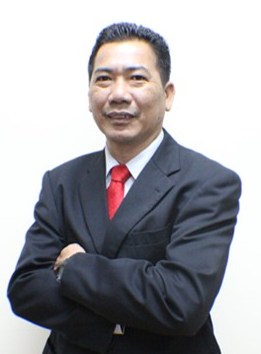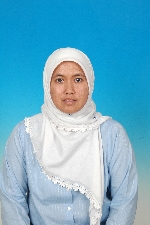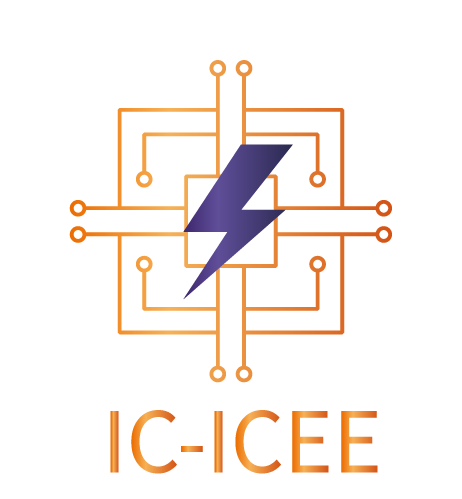
Prof. Domenico Ciuonzo
University of Naples Federico II
D. Ciuonzo received his Ph.D. in 2013 from Univ. of Campania. He has held the following visiting appointments: NATO CMRE (IT), UCONN (US), NTNU (NOR), CTTC (ES). He is a Track-Chair for IEEE WCNC 2024, a publication chair for IEEE TMA 2023, an elected member of IEEE SPS SPCOM technical committee and a member of the “Conferences and Events Committee” of the IEEE IoT Technical Community. He has served as Associate EiC for the IEEE Comm. Letters, Tech. Editor for the IEEE Trans. on Aerospace and Electronic Systems, Lead Guest Editor for the IEEE IoT Magazine. His reviewing and editorial activities were recognized by the IEEE Comm. Letters, IEEE Trans. on Comm., IEEE Trans. on Wireless Comm., and MDPI, which nominated him Exemplary Reviewer and Editor for 14 times. He is the recipient of two Best Paper awards (IEEE ICCCS 2019 and Elsevier Computer Networks 2020), the 2019 Exceptional Service award from IEEE AESS, the 2020 Early-Career Technical Achievement award from IEEE SENSORS COUNCIL for sensor networks/systems and the 2021 Early-Career Award from IEEE AESS. His research interests fall within the areas of data fusion, network traffic analysis, statistical signal processing, IoT & wireless sensor networks, and AI. He has co-authored 140+ journal and conference publications to top-notch venues. He is co-author of the IET book “Data Fusion in Wireless Sensor Networks: A Statistical Signal Processing Perspective”. Since 2016 he is an IEEE Senior Member. D. Ciuonzo is the co-PI of the PRIN-22 “GARDEN” and serves as independent reviewer/evaluator of research and implementation projects and project proposals co-funded by many EU and non-EU parties.
Speech Title: Towards Decentralized Detection in Smart IoT Environments
Abstract: With the rise of the Internet of Things (IoT), billions of tiny devices with sensing, computing, and communication capabilities are transforming everyday life in areas such as connected industries, smart cities, and healthcare. These devices must not only use existing Internet standards for data transfer and communication but also interact with the physical environment to "sense" it. Wireless sensor networks (WSNs), composed of spatially-distributed sensors, play a key role in enabling decentralized inference, such as detecting phenomena or estimating parameters. However, their effective use faces challenges, including (i) uncertainties in sensor modeling, (ii) congested wireless channels, and (iii) limited sensor battery life.
This talk explores solutions rooted in composite hypothesis testing and advanced 6G technologies, with a focus on reconfigurable intelligent surfaces (RIS) and holographic surfaces. These innovations enable dynamic control of electromagnetic waves, enhancing communication reliability, energy efficiency, and sensing capabilities, thereby reshaping the landscape of smart environments.

Prof. Mohan Lal Kolhe
University of Agder
Dr. Mohan Lal Kolhe is a professor of smart grid and renewable energy at the Faculty of Engineering and Science, University of Agder. With over three decades of international academic experience, he has held key positions at top institutions, including University College London (UK/Australia), the University of Dundee (UK), the University of Jyväskylä (Finland), and the Hydrogen Research Institute (Canada). Dr. Kolhe is an internationally recognized pioneer in his field and was a member of the Government of South Australia's first Renewable Energy Board from 2009 to 2011, where he contributed to the development of renewable energy policies.
Title: Aggregating Residential Loads for Scalable Grid Flexibility
Abstract: The Scalable Energy Management Infrastructure for Aggregation of Household Demand project, funded by the EU's FP7 program, created a unique automated demand response system to manage non-critical residential power loads. By leveraging an advanced ICT infrastructure, the system enables the aggregation of households, allowing for the remote shifting or curtailment of electrical loads based on user-defined flexibility. This work provides a foundation for new smart grid services, integrating comprehensive security and privacy functions and defining new business models for the electricity utility and its customers.

Prof. Wan Zuha Wan Hasan
Universiti Putra Malaysia
Wan Zuha Wan Hasan is a Professor at the Department of Electrical and Electronic Engineering, Universiti Putra Malaysia (UPM). He has been actively involved in teaching, research, and academic development for over 20 years. He received his BSc in Electronic & Computer and MSc in Electronics from Universiti Putra Malaysia, and PhD in Electronic from Universiti Kebangsaan Malaysia. His expertise lies in Artificial intelligent, Robotic & Automation and Sensor Technology, where he has published extensively in high-impact journals, conference proceedings, and technical books. Prof. Wan Zuha has supervised numerous postgraduate students, including PhD and Master’s candidates, and his research projects have gained national and international recognition. Currently, his research projects more on Autonomous Mechanisation System for Oil Palm Plantation, Home Service Robot, Rehabilitation Robots and Cancer Tumour Detection. He is also a Senior Member of the Institute of Electrical and Electronics Engineers (IEEE) and actively participates in committees related to engineering education and professional accreditation. Prof. Wan Zuha is a Professional Technologies (PTech) registered with the Malaysia Board of Technologies (MBOT).
Speech Title: Mechanisation and Automation Trending of Oil Palm Plantation in Malaysia

Assoc. Prof. Azura Binti Che Soh
Universiti Putra Malaysia
AZURA CHE SOH (Senior Member, IEEE) received her B.Eng. degree in Electronic and Computer Engineering and her M.Sc. degree in Electrical and Electronic Engineering from Universiti Putra Malaysia (UPM), Serdang, in 1999 and 2002, respectively. She earned her Ph.D. in Electrical Engineering from Universiti Teknologi Malaysia in 2011. She is currently an Associate Professor in the Department of Electrical and Electronics Engineering, Faculty of Engineering, UPM. She is also a Researcher in the Control System and Signal Processing (CSSP) Research Unit within the same department. Her research interests include intelligent control systems, control systems, simulation and system modelling and industrial process control. She has more than 150 publications in various journals and international conferences. Dr. Azura is a Professional Technologist registered with the Malaysia Board of Technologists (MBOT) and a member of the International Association of Engineers (IAENG), the Asian Control Association (ACA), the Malaysia Society of Engineering and Technology (MySET), and the Malaysian Society for Automatic Control Engineers (MACE).
Title: Artificial Intelligence in Industrial Process Control
Abstract: Artificial Intelligence (AI) has transformed industrial process control by enhancing automation, efficiency, and decision making. Traditional control systems often struggle with complex, nonlinear, and dynamic environments, whereas AI driven approaches such as machine learning, deep learning, and fuzzy logic offer adaptive and intelligent solutions. This talk discusses the role of AI in industrial process control, focusing on its applications in fault detection, control strategies, optimization, and real time decision support. Advanced AI techniques improve performance by leveraging historical data and dynamically adjusting control strategies. The integration of AI with the Industrial Internet of Things (IIoT) and digital twins further enhances process monitoring and optimization. Despite its advantages, challenges such as data quality, model interpretability, and computational demands persist. This talk also explores recent advancements, limitations, and future directions in AI driven industrial process control, highlighting its potential to drive automation and operational efficiency.




